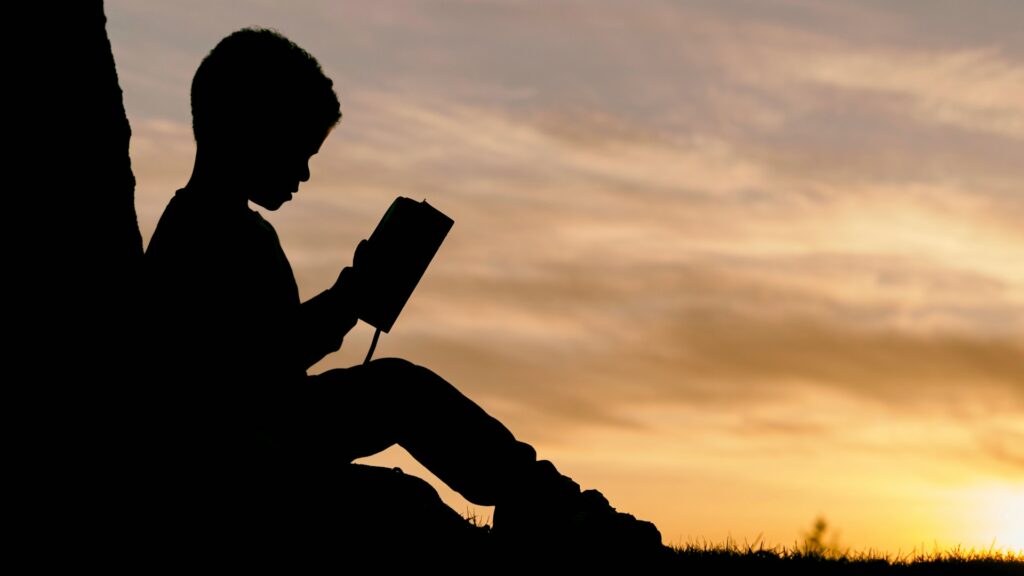Truth & Goodness
Sickles, Hammers, and Dollars: The Capitalist Miracle of “Red” Vietnam
01 March 2026

Philosophy – challenging, boring, abstract, and not very useful in life, because it is impractical. Such associations occur on a daily basis. However, on closer acquaintance with philosophy, we begin to understand that thanks to it, from an early age, we can understand more and more from the world around us. So when is it worth starting a philosophical education?
Elizabeth Taylor (1931–2011), an American actress, once said:
“The only thing you can do for your children is to raise them; you can’t live their life for them.”
Perhaps raising a child is something most valuable when they are growing up. Our goal is for our children to be smart, good, independent, and sensitive. We desire the best for them, hoping they will grow up in better conditions than we did, to have an easier life than ours, and to achieve more than we have achieved. Remembering our shortcomings in childhood, mistakes, and failures, we want to protect them from it ourselves. We invest in their development and upbringing to prepare them as best as possible for adulthood. It may therefore be worth asking in this context about the possibilities that learning philosophy provides for young people.
Philosophy, literally translated from Greek, means “love of wisdom” (filo-sophia). In reality, it is most often associated with the acquisition of life wisdom, not only in the form of knowledge but also in skills and competencies. This process takes place throughout our lives. We learn something new every day, we also use the previously acquired knowledge every day to see and understand more and more from the world around us. So maybe it would be worth starting to introduce lessons of philosophy from an early age.
After all, the process of human formation and their broadly understood development take place from the moment of birth. Children of preschool and school age are gradually being prepared for increasingly complex subjects and skills. Aldous Huxley (1894–1963), an English writer and poet, once said:
“There is only one direction of development of consciousness: From less to more perfect, from chaotic to orderly, from mindless to thinking. This is the direction of the evolution of all life on earth.”
This is the goal we set for ourselves as adults with younger generations under our care: Gradual but systematic development from the simplest things to more and more complicated ones.

Philosophy has been and is still treated by many as a difficult, abstract study, requiring prior preparation. But perhaps it is not philosophy itself that the problem lies in, but the methods of passing it on to the younger ones. Because from an early age, we teach children what good and evil are, what the difference between truth and lies is, we sensitize them to beauty, we show them how to build relationships with other people and what is important in life, we thus shape in them a philosophical and wise approach to life.
Parents often do this work in a purely intuitive way, based on their own experiences, in reference to the patterns and values they consider best themselves. This lesson learned at home will never be replaced by anything. However, perhaps it would be worth strengthening it with a professional approach in the form of early school or even preschool teaching of philosophy.
We recommend: Being Honorable: Does It Even Mean Anything Today?
It is worth noting that philosophy should not be presented as a difficult, boring, and abstract subject, but as a practical art of coping in life. If we understand philosophy as a love of wisdom, it is this subject that should be tasked with the multifaceted education of the young person.
The practical skills that are part of our knowledge include intellect, emotions, communication skills, sensitivity to values, and many other issues useful in everyday functioning. Thanks to the gradual development in each of these areas, we can become better and better people, and function better and better in the world surrounding us.
It would probably be possible, if only one would want to, to extract very simple and, at the same time, basic teachings of human existence from the vast volume of philosophical writings of every philosopher. Then it could be passed on to children at schools. For example, Aristotle’s principle of the golden rule shows why compromise is important in life, and only the balance between extremes offers us harmony. Descartes emphasized the value of reason and thinking, asking questions and seeking answers – characteristic of an early age.
Pascal, to maintain balance, placed importance on emotions and hearts that we have shaped in ourselves since childhood.
By formulating his categorical imperative, Immanuel Kant, in essence, imparted timeless knowledge that is understandable already from an early age. It can be reduced to a simple sentence:
“Do unto others as you would have them do unto you.”
French existentialists, focused on our daily experiences: Loss, sadness, freedom, and being in relationships with others, also wrote about the experiences we face very early in life. 20th-century philosophers of dialog left clues on what dialog is and how to build a conversation to reach an understanding with others. We also teach children this from an early age.
The philosophy at school should refer precisely to such practical guidance that a young person only acquires and shapes themselves as they mature. It is this subject, however, that can facilitate this path and indicate the right direction.
We recommend: Modern Bestsellers: The Art of Seducing Readers
It is not just about the specific names and detailed ideas for life that great thinkers have left behind for us. The most important thing we can and should pass on to the youngest is the ability to – think independently, and nowadays, above all – critically. It is a philosophy that teaches us how to achieve this and what tools to use to obtain satisfactory results.
Descartes showed that questioning and doubting, and so distrust of external data, is the basis of a mature mind. Many years later, a Polish writer and futurologist Stanisław Lem (1921–2006) expressed himself in this spirit in a very accurate way:
“The true man is not the one who has found the answer to all the questions, but the one who has asked himself all the questions to which there is no answer. Without this willingness to ask, man becomes an object, a zombie, a puppet.”
Despite the great merits and help that the virtual world has given us and the increasing technological advancement of the world, we are aware of the dangers that come with it. It is philosophy that teaches us, through creating one’s worldview, independent thinking, the ability to make choices, and the courageous assessment of various facts and information.
Only critical thinking helps one become immune to all kinds of indoctrination and manipulation and thus strengthens a sense of security and stability. In times dominated by fake news and the spread of post-truth, children, from an early age, should be taught how to deal with it, and how to define themselves in a world overloaded with all kinds of stimuli.
The combination of logical skills with humanistic sensitivity to other people, creative thinking, and reference to acquired values – all that could turn out to be precisely the path of shaping a young person and helping them enter maturity later on.
In a practical sense philosophy also demonstrates the culture of discussion, so flawed on our social ground. We may differ, and we may have different standpoints, but this does not have to mean hate, hate speech, and exclusion of those with whom I disagree. After all, philosophy teaches respect and substantive discussion with those whose views differ from my own. The love of wisdom in everyday life can and should translate into a desire to understand the world and another person better as well as present one’s arguments in a factual way.
Since childhood, we have entered into relationships with our peers, often accompanied by misunderstandings and quarrels, and thus: Emotions of regret, frustration, anger, and bitterness. So maybe it is worth explaining and showing in a very simple way, from the depth of philosophical approach, how to mitigate such situations, how to reach out to another human while taking care of setting one’s boundaries starting from pre-school conflicts.
The sooner we begin to develop such skills in children, the easier it will be for them to use them later in life. Philosophy shows how we get to know ourselves and others and use this knowledge for the benefit of ourselves and our neighbors.
Thus, it is important to start teaching young children that philosophy is not and does not have to be challenging, boring, and abstract, but quite the opposite. It is close to life because it demonstrates how to live.
Translation: Marcin Brański
Polish version: Filozofia w szkole od najmłodszych lat – dlaczego i po co?
Truth & Goodness
01 March 2026



Zmień tryb na ciemny